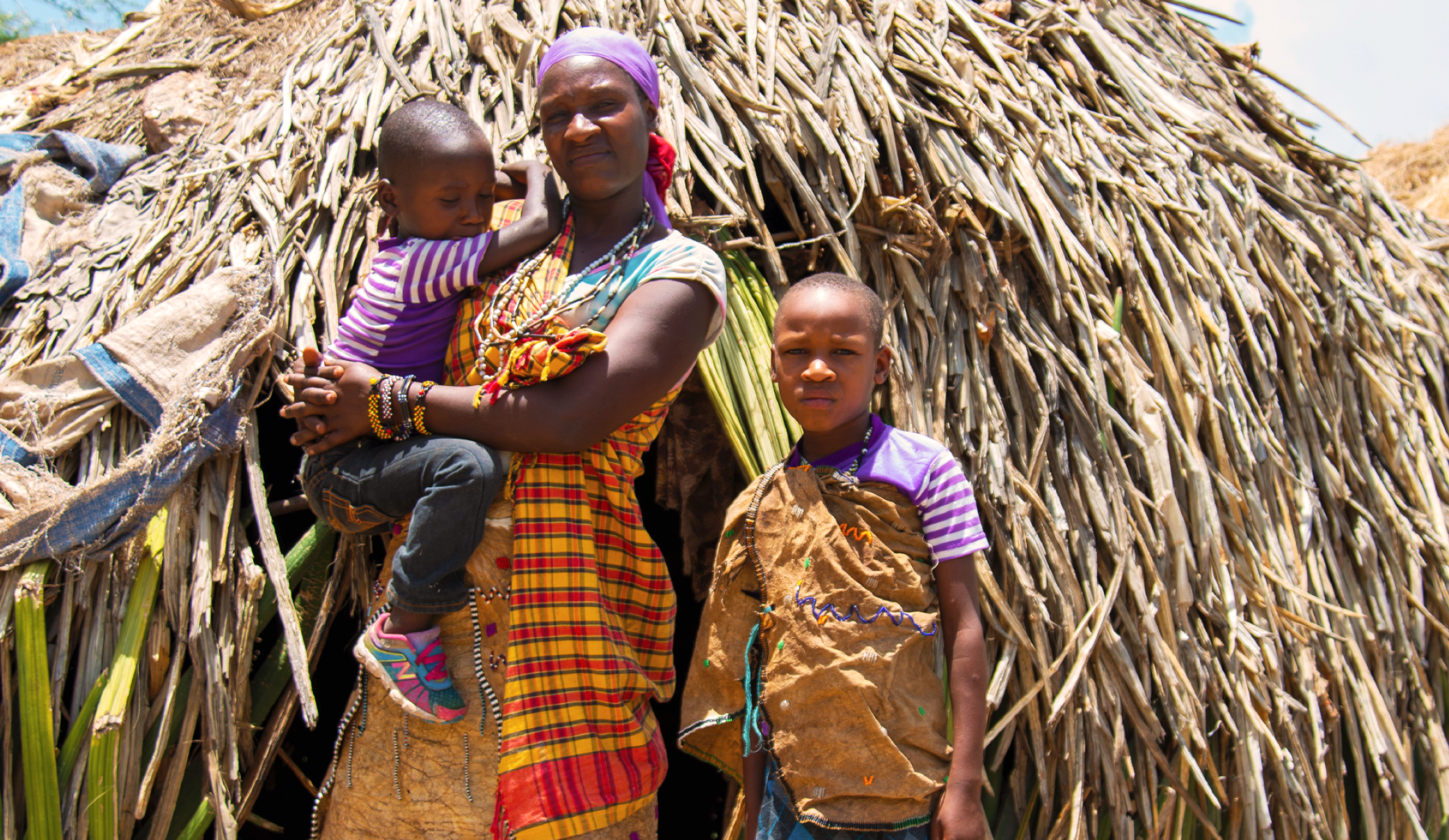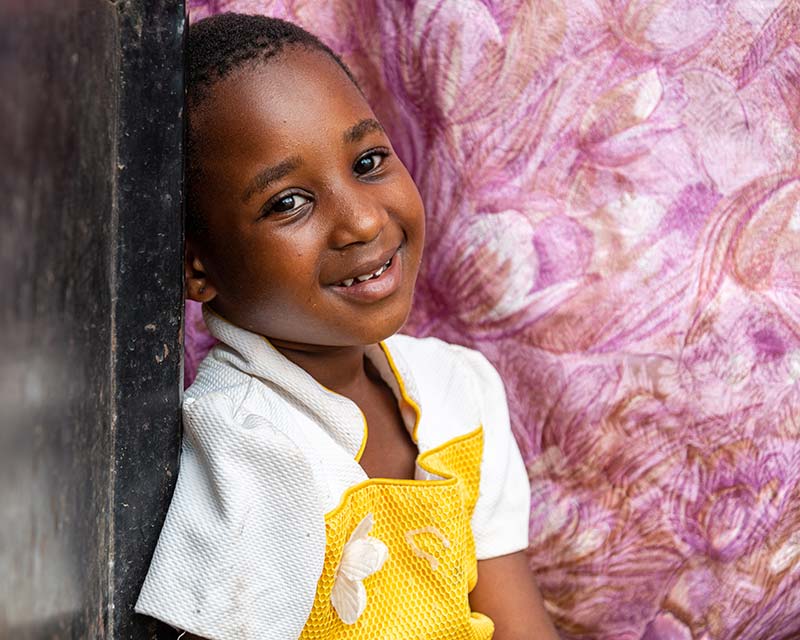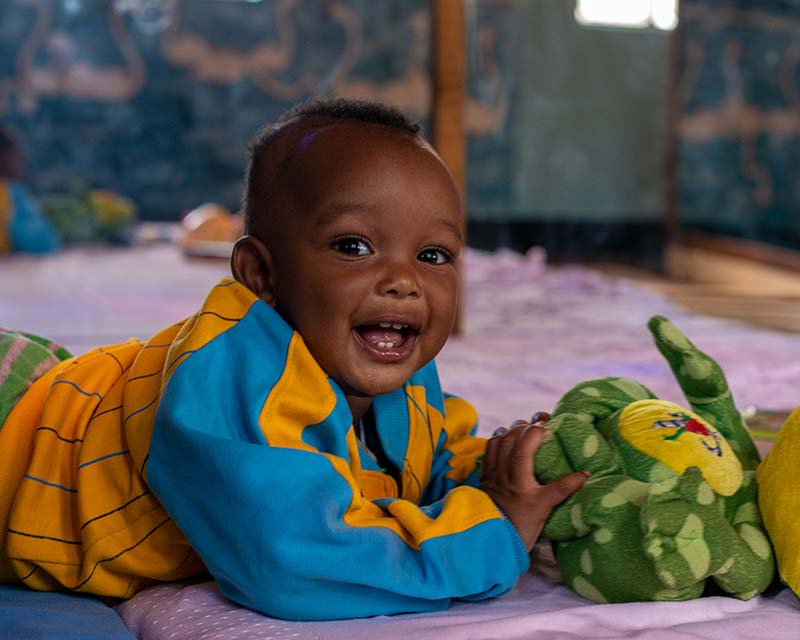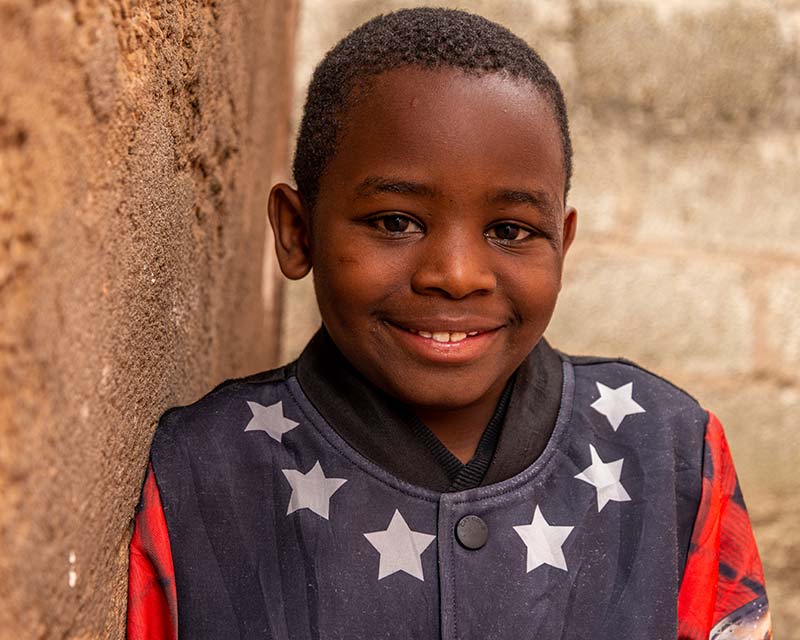
Breaking the Cycle
Education is key in breaking the cycle of poverty and now, for the first time in Maria’s family, children are going to school. Read more open_in_new
Hi, neighbour! We’re refreshing our site to make your visit better. As you move around, you may see a mix of old and new designs.
Access to basic services, including safe water, healthcare and education, is an ongoing struggle for millions of Tanzanians living in poverty.
Three-quarters of Tanzania’s workforce is involved in the agricultural sector, meaning household incomes are vulnerable to drought and flooding. Reduced crop yields can also lead to malnutrition, especially in young children. 30.6 per cent of children under 5 are experiencing stunted growth.
Our local church partners are responding by providing tailored care to help children recover from malnutrition and are equipping families with skills to develop sustainable sources of income.
Watch the video update below to hear more from our Tanzanian neighbours.
READ MOREkeyboard_arrow_down READ LESSkeyboard_arrow_upThank you for praying for staff, churches, children and families in Tanzania.

Education is key in breaking the cycle of poverty and now, for the first time in Maria’s family, children are going to school. Read more open_in_new
Compassion’s program is contextualised across countries and communities, as well as age groups.




Compassion assisted children in Tanzania typically attend program activities at their local child development centre on Saturdays, as well as a couple of hours after school during the week. Here is an example of what a typical program day looks like for children in Tanzania.
8:00am - Breakfast and a time of devotion. When they arrive, children are usually given tea served with a snack, usually an egg, bread or buns.
9:00am - Spiritual lessons, when children sing songs and learn Bible stories.
10:30am - Break time, when children can play in a safe environment and develop friendships.
11:00am - Social-emotional lessons ranging from conflict resolution to developing healthy self-esteem and a godly character. Children often come from challenging home environments and are taught social and personal skills.
12:00pm - Lunch and social time. Children usually share in a meal that comprises rice and beef, beans, ugali (stiff porridge) and fruit. Local staff aim to increase children’s protein intake.
1:00pm - Health lessons, in which children learn practical health and hygiene tips. Example topics include how to prevent malaria and HIV transmission.
2:00pm - Letter writing and career planning. Older children work with local staff to identify their strengths and interests and set goals for their future.
Children are encouraged to join in activities such as sports, games, camping, and tree-planting and cleanliness activities in the community. They also participate in public celebrations such as AIDS Day, the Day of the African Child or Uhuru Day. Additionally, parents and caregivers are offered parenting classes.
of people live in extreme poverty
of people do not have access to basic sanitation facilities
of families cannot afford to eat a nutritious diet
Tanzania is home to Mount Kilimanjaro, the tallest mountain in Africa at almost 6,000 metres in elevation. Agriculture is an important part of the country’s economy, and many families continue to observe a traditional, pastoralist way of life—including the Maasai people in northern Tanzania.
The modern nation was established in 1964 when Tanganyika and Zanzibar united to form the United Republic of Tanzania. The constitution was amended in the 1990s to allow multi-party politics and Tanzania has enjoyed relative political peace and stability ever since.
But domestic stability has not translated into economic prosperity, and many Tanzanians still live in poverty.
The most affected group live in rural or semi-rural places and work as small-scale farmers. They remain personally vulnerable to poverty because large sections of the country are vulnerable to severe weather events which significantly reduce crop yields.
So, while the economy has been growing, agriculture is growing slower than other sectors, meaning that the majority of families living in poverty aren’t benefitting as much as others.
The number of people living below the national poverty line has reduced in recent years from 34.4 per cent in 2007 to 26.4 per cent in 2018, but the absolute number of people living in poverty has held at about 13 million, due to high population growth.
Access to basic services—including safe water and proper sanitation, adequate healthcare and good education—is an ongoing struggle for millions. The government’s efforts in many of these areas have been undermined as the population has grown faster than services and infrastructure.
One of the biggest issues facing children in Tanzania is child marriage and disrupted education. Nearly two-thirds girls in Tanzania are married before their eighteenth birthday and the majority of adolescents are not enrolled in school. In some rural areas, children get married as young as 11 years old.
Meanwhile, local churches across the country are working hard to nurture and protect vulnerable children, to ensure they have opportunities to develop and experience the unfailing love of God and His church.
READ MOREkeyboard_arrow_down READ LESSkeyboard_arrow_upThese photos are a fascinating, and at times confronting, insight into the lives of children around the world in Compassion’s program... Read more
While millions of people around the world don’t have access to improved water sources, Compassion is at work to provide clean, safe drinking water for children in and their families living in poverty. .. Read more
Being born with albinism in Africa can be dangerous. Thought to possess magical powers, people with albinism have been hunted and killed for their body parts. This is Grace’s story... Read more